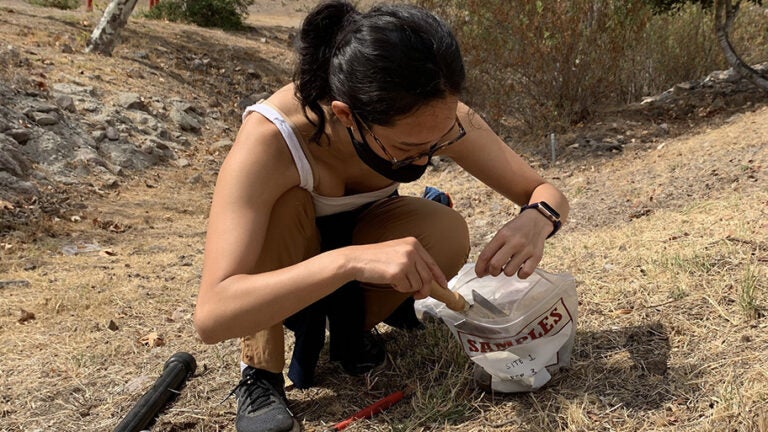
Environmental Studies program to become part of USC Wrigley Institute for Environmental Studies
In brief:
- Expanded classroom, lab, field and learning opportunities will help students become tomorrow’s environmental problem-solvers.
- This change meets a need for creative, critical thinkers that’s driven by the growing threat of climate change.
- The Wrigley Institute’s new interdisciplinary research centers provide opportunities for both undergraduate and graduate students.
Beginning Jan. 1, 2022, the Environmental Studies program at the USC Dornsife College of Letters, Arts and Sciences becomes part of the USC Wrigley Institute for Environmental Studies, headquartered at the College.
The change will benefit both entities as they more tightly connect education and research on sustainability and the environment within USC Dornsife.
“By combining the Wrigley Institute’s historical strengths in research and engagement with the innovative and student-centered educational approach of the Environmental Studies program, we’ll be better able to deliver classroom, lab, field and experiential learning opportunities that will help to shape the environmental leaders and changemakers of tomorrow,” says Joe Árvai, Dana and David Dornsife Chair, Wrigley Institute director and professor of psychology.
The new arrangement is driven by the changing landscape of environmental and sustainability challenges. Intensifying climate change is affecting almost every area of human behavior, including where and how we live, what and how we consume, what we invest in or leave behind, and how we interact with one another and with science in general.
The current generation of environmental leaders-in-training will need to develop effective solutions to these challenges by thinking critically, creatively and holistically about the linked environmental, social and economic dimensions of living sustainably.
“USC Dornsife students recognize both the urgency and the opportunities for creative thinking in the sustainability space,” said USC Dornsife Dean Amber D. Miller. “By bringing our world-class Environmental Studies program together with the integrated research mission at the Wrigley Institute, these students will both engage with environmental challenges head-on and help accelerate the behavioral changes that society must quickly adopt.”
Students can pursue degrees in the fields of environmental studies and environmental sciences and health, plus a minor in environmental studies. Environmental studies students also can choose from stand-alone bachelor’s and master’s degrees as well as options in USC’s Progressive Degree Program, which enables students to earn both a B.A. and M.A. in five years.
The program has a long history of collaboration with the Wrigley Institute, where students already have access to numerous research and experiential learning opportunities. But, says Environmental Studies Program Director Jill Sohm, the new relationship between the two units will take everything to a new level.
“We’ve worked together for years, but I’m very excited to be bringing our two groups together in an official capacity because it means that the expertise, effort, networks and fundraising capabilities of the Wrigley Institute and their staff will be particularly focused on expanding opportunities for [Environmental Studies program] students and helping our faculty create the most impactful educational experience possible,” Sohm says.
Certain aspects of the Environmental Studies program experience won’t change. There will be no immediate changes to the curriculum, and the same faculty will continue to teach the program’s classes. Available majors and minors will remain the same in the near term, and program students will continue to follow the same processes and interact with the same staff and advisors as they navigate their degree programs.
Over the coming months and years, however, as the Wrigley Institute devotes more resources to the Environmental Studies program, opportunities for students will expand significantly. First, the institute’s Wrigley Marine Science Center on Catalina Island will serve as a satellite campus for environmental studies students. The institute has already begun to renovate and modernize the campus’s classrooms and labs to better serve the program’s needs, and more capital projects are in the planning stages.
The Wrigley Institute and Environmental Studies program will also develop new curricular and co-curricular programming for students, including more internships and experiential learning opportunities.
Finally, the institute’s new interdisciplinary research centers — focused on earth and environmental systems, applied environmental solutions, and social transformation — will incorporate opportunities for both undergraduate and graduate students to participate in sustainability and environmental research at one of the country’s leading universities.
These changes are all emblematic of a larger move to make USC and the Wrigley Institute the best possible home for students who want to become tomorrow’s environmental leaders.
“As the director of a student-centered program, my north star is doing things that are good for our students,” Sohm says, “and I believe that joining [the Environmental Studies program] with the Wrigley Institute will be very good for our students.”